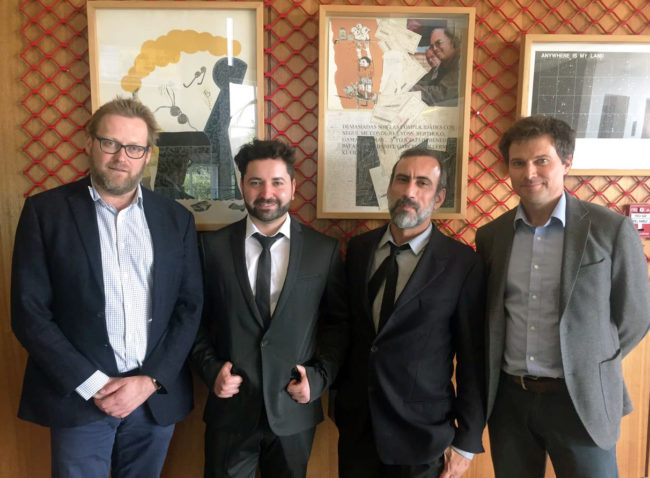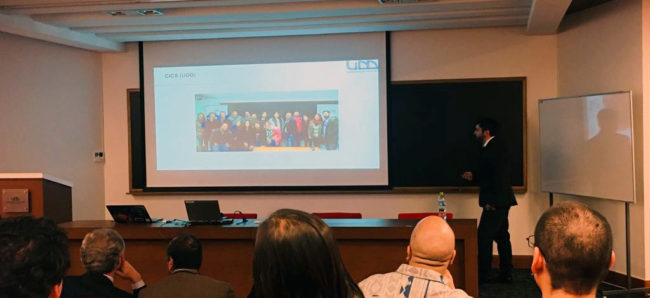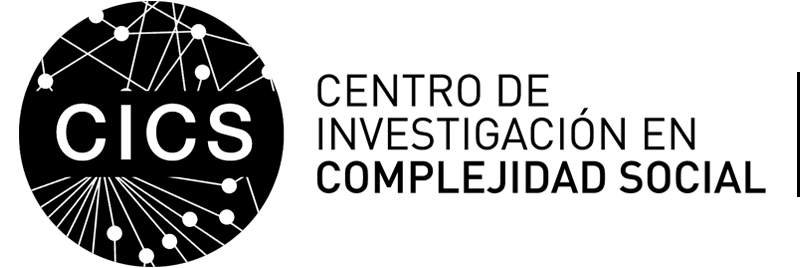The Doctoral Program in Social Complexity Sciences has its first graduate
Tuesday, 10 April, 2018 | NEWS
Cristian Candia-Castro-Vallejo became the first Ph.D. of Social Complexity Sciences, a postgraduate degree awarded by the Faculty of Government of the Universidad del Desarrollo through its Center for Research in Social Complexity (CICS). In a ceremony open to the public he presented his thesis on the development of a multidisciplinary approach for the creation of a mathematical model that serves as a support to the existing theoretical framework for the analysis of complex systems.
In an event attended by the Rector Federico Valdés Lafontaine, the Dean of the Faculty of Government, Eugenio Guzmán, and the Director of the CICS, Carlos Rodríguez-Sickert, the first Ph.D. of Social Complexity Science presented his research to the UDD community.
Cristian Candia-Castro-Vallejo, trained as a physical engineer at the Universidad de Concepción, joined the first generation of the program in 2014. With the work “Understanding Collective-Action-Systems Through a Computational Social Science Approach: Three Study Cases” he graduated with distinction after a process that included internships in the Collective Learning of the MIT Media Lab, led by his thesis co-tutor, César Hidalgo, and in the Barabasi Lab, led by the expert in Network Theory, László Barabási.
Rodríguez-Sickert, his thesis supervisor, highlighted the academic success and the institutional strengthening that the degree obtained by Candia represents for the CICS and the University. This is a milestone that marks the work developed with the Public Policy Center of the Faculty of Government, the Data Science Institute and the Center for Sustainability Research, both part of the Faculty of Engineering, which launched the program in 2014 and currently has 18 students.

“Understanding Collective-Action-Systems Through A Computational Social Science Approach: Three Study Cases”
His research work developed a multidisciplinary approach for the creation of a mathematical model that serves as a support to the existing theoretical framework for the analysis of complex systems. This, given the complex nature of collective action problems, allows transforming data into knowledge that can be used to improve decision making and the results of different systems. For this he used: dynamic systems, network analysis, econometrics, topical modeling analysis and geographic analysis, on Databases and text mining.
This theoretical approach was worked from the data obtained from three case studies in three different systems where collective action is at the core of the operation and functioning: Cultural system (how society discards pieces of information over time), System Educational (how applicants perceive the higher education system) and Legal System (conflicts for water rights temporarily and geographically mapped). These cases provide the opportunity to build data sets that capture the complexity of the collective dynamics that govern them.
With this, he demonstrated how this multidisciplinary approach and the use of Computational Social Science allow to provide new knowledge that, in turn, opens new ways to improve the efficiency of these systems.












